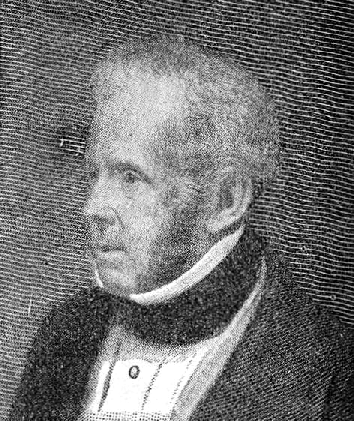Life of Gladstone - M. B. Synge |
Rejected for Oxford
|
"Thus I turn my back; There is a world elsewhere." —SHAKESPEARE. |
The long Parliament of Lord Palmerston came to an end on July 6, 1865. Mr. Gladstone had never been in sympathy with his chief. Lord Palmerston had always mocked at enthusiasm and despised earnestness. It was impossible he should get on well with a man with whom "every opinion was a belief and every feeling a passion," who from boyhood to old age could never take anything lightly.
 LORD PALMERSTON. |
The dissolution was fraught with important changes for Mr. Gladstone. As events turned out, he had represented the University of Oxford for the last time. Since he had accepted office in a Liberal Government, his hold on his constituents in the university had been weakened. In the spring of this year he had made a speech, strongly denouncing the establishment of the Irish Church. She stood, he said, in a false position, ministering only to one-eighth of the whole community. This speech was printed and circulated by his Oxford opponents, and had, doubtless, some considerable effect on the election.
"Without having to complain" Mr. Gladstone had said even five years before. "I am entirely sick and weary of the terms upon which I hold the seat."
Yet he was reluctant to sever a bond which had brought him so much happiness and so much honour. He offered himself for re-election. When the voting closed he was at the bottom of the poll. On the eighteenth of July he uttered his parting address:—
"After an arduous connection of eighteen years, I bid you respectfully farewell. My earnest purpose to serve you, my many faults and shortcomings, the incidents of the political relation between the university and myself, established in 1847, so often questioned in vain, and now at length finally dissolved, I leave to the judgment of the future. It is one inoperative duty, and one alone, which induces me to trouble you with these few parting words—the duty of expressing my profound and lasting gratitude for indulgence as generous, and for support as warm and enthusiastic in itself, and as, honourable from the character and distinctions of those who have given it, as has, in my belief, been accorded by any constituency to any representative."
It was a bitter moment.
"There have been two great deaths . . . . in my political existence, he wrote to a friend three days later "one, very slow, the breaking of ties with my original party; the other, very short and sharp, the breaking of the tie with Oxford."
Mr. Gladstone had now to seek another seat. He turned his face towards South Lancashire.
"By George!" cried one of his friends when the news of his defeat was known, "won't Oxford catch it to-night at Liverpool."
Mr. Gladstone's revenge was somewhat different from his expectations.
The whole man was wounded, sorely wounded; but he loved Oxford too well to take his revenge on her.
"I am not angry, only sorry, and that deeply," he wrote; and his so-called revenge was couched in these words:—
"I have endeavoured to serve that university with my whole heart; and with the strength or weakness of whatever faculties God has given me, it has been my daily and nightly care to promote her interests, and to testify to her as well as I could my love. Long has she borne with me. Long, in spite of active opposition, did she resist every effort to displace me. At last she has changed her mind. My earnest desire, my heart's prayer, is that her future may be as glorious as her past, and yet more glorious still."
Turning to his new constituents, he repeated the same thing.
"Do not let me come among you under false colours or with false pretences," he cries. "I have loved the University of Oxford with a deep and passionate love, and as long as I live that attachment will continue. If my affection is of the smallest advantage to that great, that ancient, that noble institution, that advantage Oxford will possess as long as I breathe . . . . Could they have retained me by a majority of one, nothing could have induced me to quit that university to which I had so long ago devoted my best care and attachment."
South Lancashire returned three members. When the voting closed it was found that Mr. Gladstone had secured a seat, being returned in the third place but that seat was alarmingly insecure.
"Mr. Gladstone is a dangerous man," his chief is reported to have said. "In Oxford he is muzzled; but send him elsewhere, he will run wild."
Good-humouredly Mr. Gladstone used these words to the electors of South Lancashire. "At last, my friends," he said, I am come among you; and I am come, to use an expression which has become very famous, and is not likely to he forgotten. I am come unmuzzled."
The words were significant. As long as Mr. Gladstone was politically associated with Oxford, the alma mater he loved with such changeless affection, it was possible he might resist the silent forces which were carrying him onward towards Liberalism. When Oxford snapped the chain, he was free to go whither he listed. He had retired from the representation of Newark in order to pursue the interests of free trade; he had been driven from the representation of Oxford because he was bent on disestablishing the Irish Church.
Henceforth it would he as The Times of 1865 remarked: "Mr. Gladstone will belong to the country, but no longer to the university."